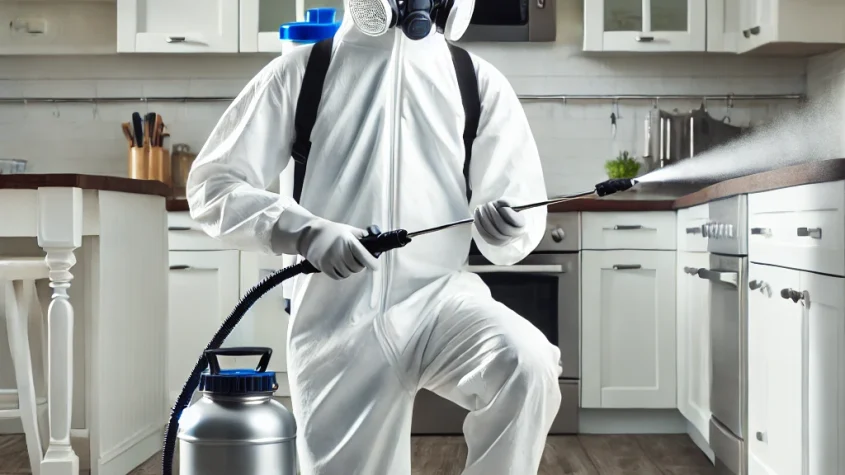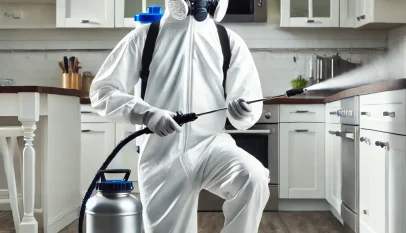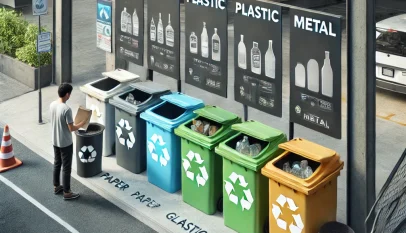
Homeowners in Delta often face challenges with pests that can disrupt their living environment. Residential pest control services Delta offer effective solutions to manage and eradicate common nuisances such as ants, rodents, and termites. Understanding the importance of maintaining a pest-free home is crucial for comfort and safety.
The pest control industry in Delta provides a range of options tailored to specific needs. Professionals conduct thorough inspections and implement strategies that ensure long-term results. This meticulous approach not only addresses existing infestations but also helps prevent future occurrences.
Investing in residential pest control services is essential for maintaining a healthy home. By choosing qualified local experts, residents can rest assured that their pest problems will be handled efficiently and effectively.
Understanding Residential Pest Control Services in Delta
Residential pest control services in Delta focus on identifying and managing common household pests that can threaten health and property. These services involve comprehensive approaches to mitigate risks and incorporate eco-friendly options that cater to the community’s needs.
Common Household Pests in Delta
Delta homeowners often encounter various pests, including ants, termites, rodents, and spiders.
- Ants: Sugar ants and carpenter ants are prevalent. They invade homes in search of food and nesting sites.
- Termites: These wood-destroying insects can heavily damage structures. They often go unnoticed until significant damage occurs.
- Rodents: Mice and rats can enter homes through small openings, posing health risks and contaminating food supplies.
- Spiders: While most spiders are harmless, some can pose risks through bites.
Recognizing these pests early is crucial for effective management.
Health Risks and Damage Caused by Pests
Pests can cause a range of health issues and property damage.
- Allergies: Pollen and droppings from insects can trigger allergic reactions.
- Diseases: Rodents may carry diseases such as hantavirus or leptospirosis, endangering human health.
- Property Damage: Termites can lead to expensive repairs by damaging wooden structures and furniture.
- Food Contamination: Pest infestations can result in contaminated food, leading to foodborne illnesses.
Awareness of these risks highlights the importance of timely pest control.
Eco-Friendly Pest Control Solutions
As awareness of environmental concerns grows, many Delta residents seek eco-friendly pest control solutions. These methods aim to minimize chemical use while effectively managing pests.
- Biological Control: This involves using natural predators, like insects that target specific pests.
- Botanical Insecticides: Certain plants have insecticidal properties that are less harmful to humans and pets.
- Integrated Pest Management (IPM): This strategic approach combines prevention, monitoring, and control methods tailored to each situation.
By implementing these eco-friendly practices, residents can protect their homes while safeguarding the environment.
Choosing the Right Pest Control Provider
Selecting a reliable pest control provider requires careful consideration of several key factors. Effective inspection strategies, treatment options, and aftercare measures significantly impact pest management success.
Inspection and Assessment Strategies
A thorough inspection is the foundation of effective pest control. Providers should conduct a comprehensive assessment of the property to identify infestations and potential entry points.
Key elements of the inspection process include:
- Visual Inspection: Technicians examine common areas where pests are likely to hide, such as under sinks, around appliances, and inside attics.
- Identification: Accurate identification of the pest species is crucial for tailored treatment solutions.
- Assessment of Environment: Understanding the surroundings helps in determining conducive conditions for pest activity.
A quality provider will use advanced tools, such as moisture meters and thermal imaging, to ensure a detailed evaluation.
Treatment Options and Procedures
Different pest problems require distinct treatment approaches. A competent provider will offer a range of options, including:
- Chemical Treatments: These may involve the application of pesticides that effectively target specific pest species while minimizing risks to humans and pets.
- Biological Control: Use of natural predators, such as introducing beneficial insects, can be a sustainable approach.
- Sealants and Barriers: Implementing physical barriers can prevent pests from entering the property.
Clients should inquire about the methods used and confirm that they comply with safety standards and regulations.
Aftercare and Preventative Measures
After pest treatment, ongoing care and preventative strategies are essential to maintain a pest-free environment. An effective provider will offer:
- Follow-Up Inspections: Regular follow-ups help to ensure that the treatment was successful and monitor for any new activity.
- Preventative Advice: Recommendations may include sealing cracks, proper waste management, and landscaping adjustments to deter pests.
- Maintenance Programs: Some companies provide ongoing pest management services tailored to specific needs.
Choosing a provider that emphasizes aftercare and preventative measures can greatly enhance long-term pest control effectiveness.
Recycling Drop Off: Your Guide to Proper Waste Disposal
Recycling dropoffcenters offer a convenient solution for those looking to dispose of recyc…









